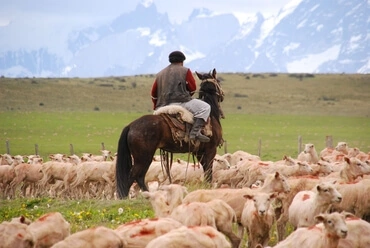1
The LORD is my shepherd; I shall not want.
2
He maketh me to lie down in green pastures: he leadeth me beside the still waters.
3
He restoreth my soul: he leadeth me in the paths of righteousness for his name's sake.
4
Yea, though I walk through the valley of the shadow of death, I will fear no evil: for thou art with me; thy rod and thy staff they comfort me.
5
Thou preparest a table before me in the presence of mine enemies: thou anointest my head with oil; my cup runneth over.
6
Surely goodness and mercy shall follow me all the days of my life: and I will dwell in the house of the LORD for ever.








